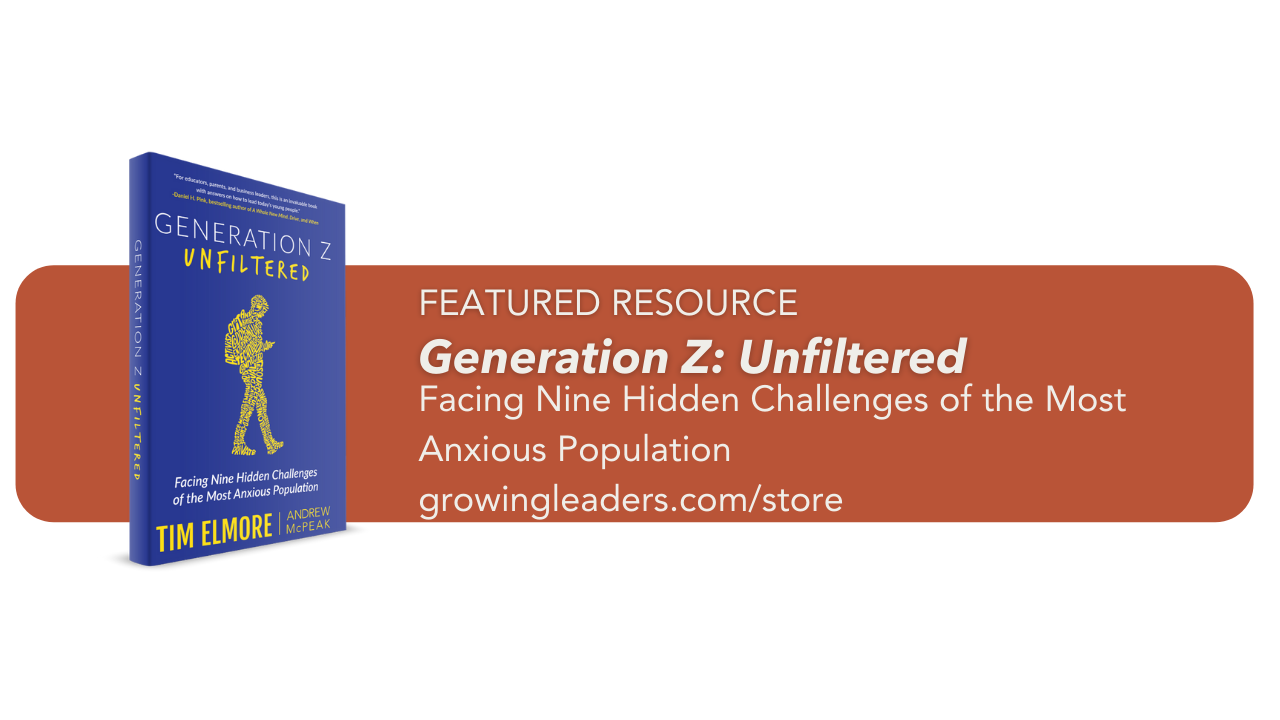
Why I Remain Optimistic About Generation Z
By: Tim Elmore
I just met a young woman on a podcast interview who helped me recapture my hope for the future. Her name is Shamma Al Mazrui, and she is from the United Arab Emirates. Shamma graduated from New York University, Abu Dhabi, as her nation’s first Rhodes Scholar. Shamma was then elected as the Minister of State for Youth in her country, at the ripe age of 22.
She’s the youngest government minister in the world and the only one in such a position.
In her interview, she explained that there aren’t more people her age involved in politics as elected officials because people tend to see youth as a problem to solve, not as an asset to leverage. So, older adults set them aside and hope they stay out of trouble rather than engage them as problem solvers in their communities. She’s assembled a team of young adults who address old problems in new ways, and they’re gaining traction with the public. She calls them “youth circles.” Her belief is that young people can, indeed, become a problem if adults don’t engage them in solving society’s problems. They will find something “interesting” to do, good or bad.
Why not focus their energy?
Translating This in Our Context
Much like the United States, the U.A.E.’s population is made up of old and young, but 60 percent of their population is under 35 years old, which represents two emerging generations.
Shamma said, “We believe a nation’s ability to harness the youth directly impacts its security and its future. We don’t just involve youth, we let them lead. It’s baffling how much youth have been sidelined. Too many of us see them as a problem rather than a solution. Today, division has narrowed in our government. Youth are now part of conversation.”
Some have called Shamma’s influence in her country “magic.” She approaches each endeavor with humility, respect, and honor—but also boldness. She is improving education, community experiences, women’s activism, and young people’s involvement in society. She’s been so successful that in 2019, UAE’s prime minister asked her to be Vice Chair of the Community and Legacy Committee of the UAE Special Olympics World Games. How has she achieved so much momentum in such a short amount of time?
The key, Shamma believes, is found in one sentence: “What we nourish will flourish.”
If we nourish students with hope and belief and offer them tools to solve problems, they will flourish instead of languish. Shamma believes if every government made these kinds of changes, we would see them all flourish globally.
The Building Blocks
Her government created a definition for youth empowerment, a measurement and an index to hold everyone accountable to outcomes. The cabinet created criteria for youth involvement in all parts of government. Check out the six categories:
- Voice – Youth should feel they are heard when they speak.
- Recognition – Youth should be affirmed as they achieve goals.
- Purpose – Youth should be offered a meaningful mission.
- Guidance – Youth should be provided with direction.
- Development – Youth should be mentored into maturity.
- Opportunity – Youth should be given chances to succeed.
This young leader and these six building blocks have made me stop and reflect. When I see a student or young adult fail at something, violate the law, make a huge mistake, or even display violence, do I automatically think:
- Ugh! This is typical of young people.
- Or, hmmm, how do I stop this problem from getting worse?
- Or, how can I channel this energy into something positive?
The future awaits our response. Just ask Shamma.







